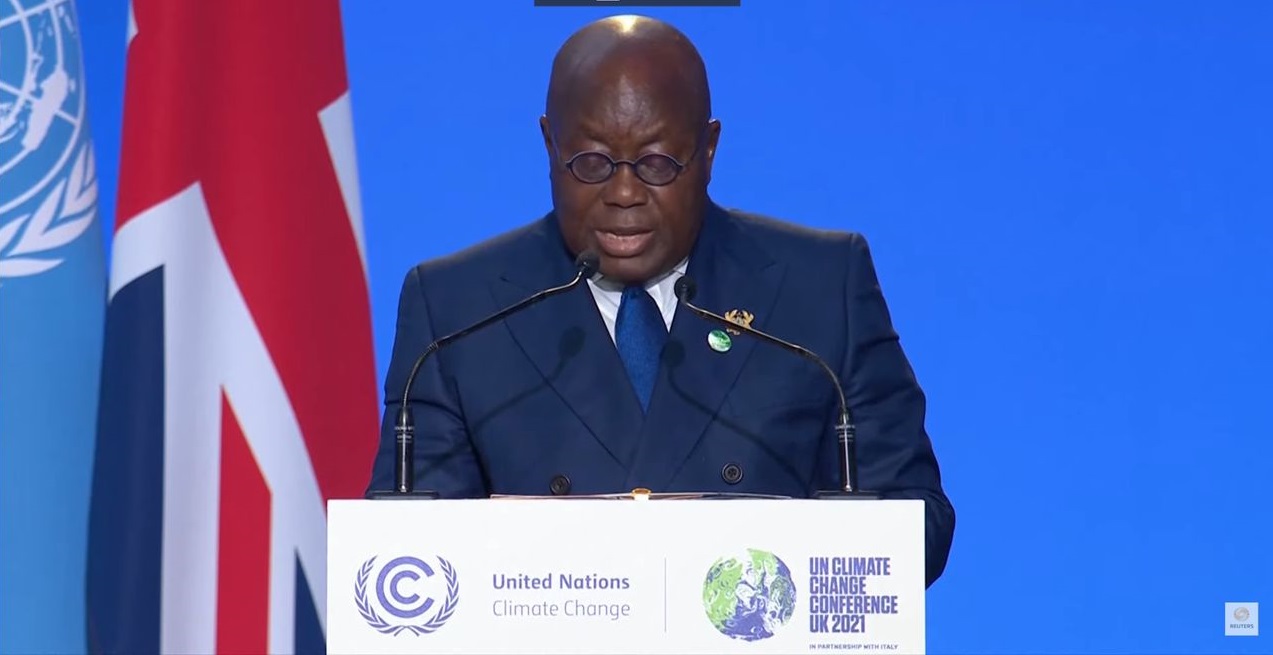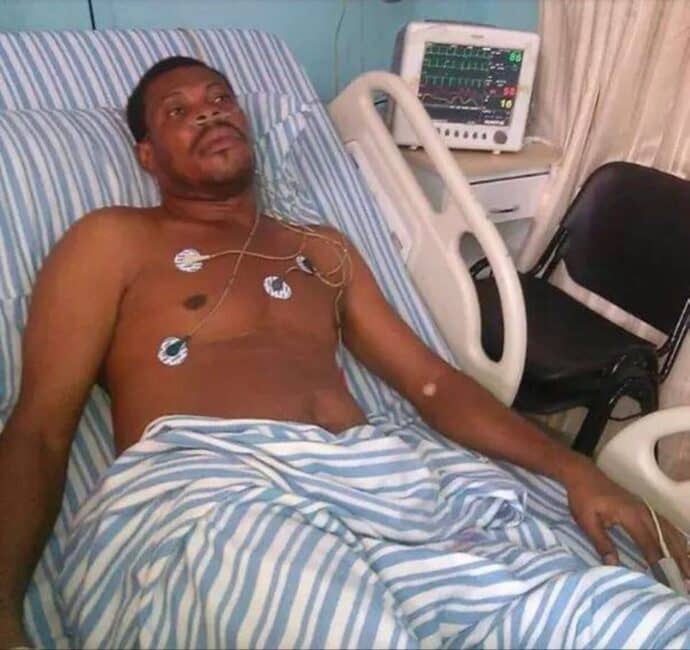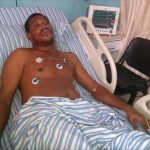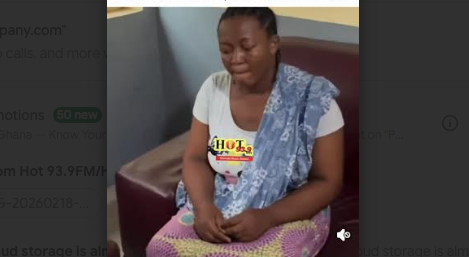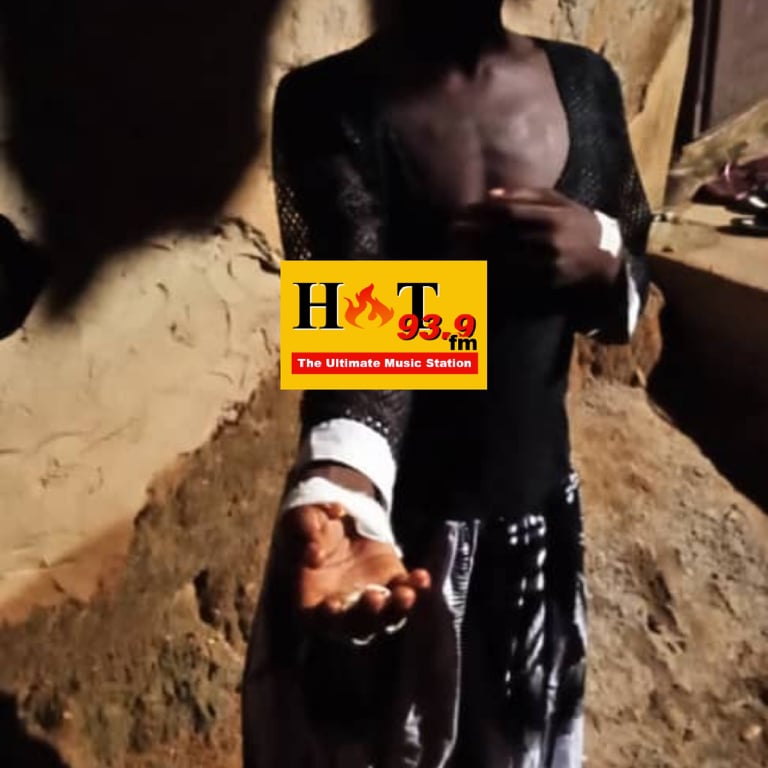Fellow Ghanaians, good evening.
I first came to your homes on Wednesday, 11th March 2020, five (5) days after our nation’s 63rd Independence Day celebration, a day before we recorded our first two (2) cases, with news of the measures Government was taking to limit the importation of the COVID-19 virus into the country.
Even at that time, it was obvious to me, watching what was happening in Asia, Europe and Latin America, that, if it was not well-managed, it would disrupt our lives and livelihoods.
I, therefore, instructed the Finance Minister, which was announced in Update No.1, to find the cedi equivalent of one hundred million dollars ($100 million), to enable us to prepare and mount an appropriate response to the pandemic. Since then, we have experienced four waves of the outbreak.
Some 160,932 people have tested positive from the 2.4 million tests conducted, and 1,445 people have, sadly, died.
Our comprehensive strategy has entailed living with restrictions that altered our daily routine; we have been restrained from shaking hands and hugging one another; we have had to keep a distance from each other; we have had to put up with the discomfort of wearing face masks every time we left our homes; we have had to endure distress caused by the poking of our nostrils and throats with swab-sticks, each time we underwent a PCR or antigen test; we had to endure, for three weeks, the painful lockdown in the Greater Accra Metropolitan Area and Kasoa and the Greater Kumasi Metropolitan Area and contiguous districts; and we have all borne the brunt of the ravages of the pandemic.
As your President, I saw it as my duty to provide you with regular updates on the situation, the measures government is taking, and to seek your support and co-operation. That is why I have been a constant feature on your screens these past two years, in the addresses that have now become popularly referred to as “Fellow Ghanaians”, and I thank you for welcoming me so warmly into your homes.
You have listened to me, you have co-operated with Government and with the health experts, you have adhered to the enhanced hygiene and mask wearing protocols, and a considerable number of you have taken the vaccine.
I thank you for the opportunity you have given me to be your President in these difficult times. I do not take it lightly. The relative successes we have chalked in winning the fight against COVID-19 have been collective ones, which reinforce my belief that, if we are united, there is no obstacle or hurdle too high to surmount in our quest to build a progressive and prosperous Ghana.

Fellow Ghanaians, undoubtedly, like in every country in the world, the effects of the pandemic have been devastating for us, in Ghana. We have felt the brunt of COVID-19, with every aspect of national life affected. I did say at the height of the pandemic that “we know what to do to bring the economy back to life; but what we do not know is how to bring people back to life”. We, thus, had to take drastic steps to protect lives and livelihoods by suspending, for the years 2020 and 2021, our pursuit of fiscal responsibility, which had made the Ghanaian economy the poster boy of rapid economic growth in the world in 2017, 2018, and 2019.
You would recall that, in response to the pandemic, I mandated the creation of the Coronavirus Alleviation Programme to support households and micro, small, and medium-size businesses (MSMEs). Its intent was to help minimise job losses, and stimulate economic revitalisation, by mobilising private and public sector finances to expand industrial output for domestic consumption and exports.
To this end, I instituted a GH¢1.1 billion health response package, which was used to procure supplies and equipment, and a relief package for health workers, which included tax waivers, allowances, transportation and COVID-insurance. Government also found the money to recruit, on a permanent basis, twenty-four thousand, two hundred and eighty-five (24,285) more health professionals.
GH¢1.6 billion was made available to support vulnerable households across the country, which went into food packages and hot meals, and the provision of free water for all, free electricity for lifeline consumers, and 50% rebate for all others. Some seven hundred and fifty million cedis (GH¢750 million) in soft loans and grants were also disbursed to micro, small and medium sized businesses to help maintain their economic activity. The Government Statistician tells us that this expenditure has achieved its purpose.
At the height of the pandemic, despite strong opposition in some quarters and the legitimate concern of some parents, we stood firm and were successful in ensuring that the education of our children was not truncated. We spent some GH¢1.9 billion providing PPEs and hot meals for students, teaching and non-teaching staff, hand washing facilities, training of teachers on COVID, development of content for online classes, and disinfection and fumigation of schools.
This made it possible for students to return in conditions of safety, sit for their respective examinations, and achieve successful results. Indeed, the spectacular results of the first and second batches of the Free SHS graduates, whom I proudly call the Akufo-Addo graduates, are testament to this.
I want to state, without any equivocation, that should our nation, God forbid, be confronted by such a pandemic again, and I, Nana Addo Dankwa Akufo-Addo, am, by the grace of God, your President, I will not shy away from taking such essential steps to protect you and your businesses again.
Fellow Ghanaians, whilst we count the costs, COVID-19 also inspired our domestic manufacturing capabilities, and deepened our self-reliance. The pharmaceutical industry, at my instigation, responded positively to the need for domestic production of sanitizers, disinfectants, and liquid soaps. Furthermore, Government was able to procure some eighty-one million cedis (GH¢81 million) worth of personal protective equipment, such as face masks, headcovers, medical scrubs and hospital gowns from domestic garment and textiles manufacturing companies for health workers, and for students going back to school to prepare and sit for their final examinations.
COVID-19 also highlighted the unequal distribution of healthcare facilities in the country, as we have tended to focus our healthcare infrastructure in Accra, Kumasi and one or two of our other big cities. As we have seen, epidemics and pandemics, when they emerge, can spread to any part of the country.
There are one hundred and one (101) districts in the country with no district hospitals, and we have to do something about it. The creation of the new regions also means that Government has to construct six (6) Regional Hospitals for the six (6) new Regions, and a befitting new regional one for the Western Region, and see to the construction of three (3) new psychiatric hospitals for the Coastal, Middle and Northern Belts, respectively, and rehabilitate the Effia-Nkwanta Hospital in the Western Region. This has led to the formulation and declaration of Agenda 111, the biggest ever investment in the nation’s healthcare sector. Work is currently underway, and before the end of my tenure of office on 7th January 2025, all one hundred and eleven (111) hospitals would have been commissioned.
Since March 2021, vaccination has become a central part of our strategy to defeat the pandemic. Our aim has been to achieve herd immunity as soon as possible, and our target has been to vaccinate twenty million of our population. Our initial challenge was to secure enough vaccines to meet this target. We have, so far, acquired nearly twenty-nine million (29 million) vaccine doses in the country, having administered some 13.1 million doses as at 26th March 2022.
Whilst appreciating COVAX and other donors in COVID-19 vaccine supply initiatives, and Government also procuring further vaccine consignments through AU and AVATT initiatives, Ghana, Rwanda and Senegal, in partnership with the German biotechnology company, BioNTech SE, are venturing into vaccine development and manufacturing, with the three countries determined to become vaccine manufacturing hubs in sub-Saharan Africa. We want to achieve self-sufficiency in vaccine production to meet future national, regional and continental needs for health security. We shall not then, in the future, be at the mercy of foreign vaccine nationalism and geopolitics.
Last year, I set up a Vaccine Manufacturing Committee, under the chairmanship of the world-renowned Ghanaian scientist, Prof. Kwabena Frimpong-Boateng, which will, soon, be transformed by Act of Parliament into the National Vaccine Institute. We have committed twenty-five million dollars ($25 million) to develop our domestic vaccine production capability, and facilitate the capacity of domestic pharmaceutical companies to fill, finish and package mRNA COVID-19, malaria, tuberculosis and other vaccines, as a first step towards vaccine production.
Fellow Ghanaians, we have reached a critical point in our fight against COVID-19. Government has undertaken a comprehensive review of the raft of measures put in place to help win the fight against the virus.
This review is premised on the background of rapidly declining infections, the relative success of the vaccination campaign being supervised by the Ghana Health Service, and the increased capacity developed in the public and private health sectors over the last two (2) years.
Indeed, as at Friday, 25th March 2022, the total number of active cases stood at seventy-two (72). There are no severely or critically ill persons. Our COVID-19 treatment centres are empty, and the 4th wave appears to be over. In addition to these very low reported cases is the considerable improvement in the availability and uptake of vaccines by the population.
Whilst we have not achieved our national vaccination coverage target, it is significant to note that reasonable vaccination coverages have been achieved in the hotspots of infections, particularly in the urban areas of Greater Accra and Greater Kumasi. Government is determined to use all means to increase the deployment of vaccination across the country to achieve our target of vaccinating some twenty million (20 million) Ghanaians by June.
To my Fellow Ghanaians who have not received the jab, I urge you to take it. To those listening to the propaganda by the conspiracy theorists and those who are still sceptical about the efficacy of the vaccine, it has been a year since my wife and I got vaccinated; it has not disrupted our physical wellbeing, neither has it caused us to be sick. We are, touch wood, hale and hearty, like the other 13.1 million Ghanaians who have been vaccinated.
With countries in the ECOWAS Community, especially in our neighbouring countries, presently, like us, recording very low levels of infections, and having significant numbers of our people vaccinated, and on the advice of the national COVID-19 Taskforce and the health experts, I have taken the decision to revise the COVID-19 Restrictions, enacted under E.I. 64.
At this point, I want to express the great gratitude of the nation to the leadership and membership of the Ghana Health Service, to all other health workers, and to members of the COVID-19 taskforce for the outstanding work they have done in bringing us this far. Ours was an all-inclusive national effort including the security services, public and private sector agencies, religious and chieftaincy institutions, charitable organisations, all of whom have helped in bringing us this far. I hope I will be forgiven if I single out the Church of Pentecost, the Catholic Church, and the Ghana COVID-19 Private Sector Fund, for special praise. They all demonstrated exceptional love of country.
So, from tomorrow, Monday, 28th March, the wearing of facemasks is no longer mandatory. I encourage all of you, though, to continue to maintain enhanced hand hygiene practices, and avoid overcrowded gatherings.
All in-person activities, such as those that take place in churches, mosques, conferences, workshops, private parties and events, cinemas and theatres may resume at full capacity, as long as the audience and/or participants are fully vaccinated. Hand washing and hand sanitising points should be made available at these venues.
Outdoor functions at sporting events, entertainment spots, political rallies and funerals may resume at full capacity, again, as long as all persons at these events are fully vaccinated.
Government will continue to engage all religious and traditional leaders, agencies and institutions to encourage their congregants, subjects and citizens, respectively, to be vaccinated, to help achieve the 20 million target by June 2022. I will also urge the media to support this campaign.
Fellow Ghanaians, we had to impose measures to limit the importation of the virus into our country, especially as our first cases of the virus were imported through the Kotoka International Airport (KIA). Currently, the Kotoka International Airport only allows fully vaccinated passengers, who are in possession of a 72-hour negative PCR test result prior to embarkation, and have a negative antigen test result on arrival, entry into the country.
Ghanaian citizens and foreign residents in Ghana, who are unvaccinated or not fully vaccinated currently, are given waivers by the Ghana Health Service (GHS) to allow them entry into the country through the Kotoka International Airport. They must also have a 72-hour negative PCR test result prior to embarkation, take an antigen test on arrival, and are offered vaccination.
From tomorrow, Monday, 28th March, fully vaccinated travellers into Ghana will not take PCR tests from the country of embarkation to allow them entry into the country through the KIA, and will not be tested on arrival. Citizens and foreign residents in Ghana, who are not fully vaccinated, would, however, need to provide a negative PCR test result of not more than 48-hours, will undergo an antigen test upon arrival at KIA, and will be offered vaccination there. Ghana’s Foreign Missions have been instructed to make vaccination a requirement for visa acquisition.
It is worth noting that the establishment of the COVID-19 testing infrastructure at the Kotoka International Airport by Frontier Healthcare Services Ltd, at its own cost, has been key to our ability to limit successfully the importation of the virus into Ghana through the airport. The efficacy of the testing regime at KIA has won global admiration, and has been applauded by all those who have undergone its testing. It has been one of the reasons why Ghana was not at the receiving end of several of the travel bans imposed by the West at the height of the pandemic, for which many African countries were affected.
As from tomorrow, Monday, 28th March, all land and sea borders will be opened. Fully vaccinated travellers will be allowed entry through the land and sea borders without a negative PCR test result from the country of origin. Citizens and foreign residents in Ghana, who are not fully vaccinated, will have to produce a negative 48-hour PCR test result, and will be offered vaccination on arrival.
Fellow Ghanaians, it has been a difficult two (2) years for all of us, and we are seeing light at the end of a very long tunnel. I appeal to all of us to live responsibly, protect ourselves at all times, and do everything we can to stay safe, as we lift these restrictions. Now is the time for all of us to join hands, work hard, and help put our nation back onto the path of progress and prosperity, as we resume full production and increase productivity.
As your President, I assure you that, sooner rather than later, our economy will rebound from the ravages of COVID-19. The policies we are implementing will, with your active support, help grow the economy at a much faster rate, help create jobs for the youth, and help us overcome the difficulties we are faced with. This too shall pass!! For the Battle is still the Lord’s!!
May God bless us all, and our homeland Ghana, and make her great and strong.
I thank you for your attention, and wish the Black Stars, who gave a good account of themselves in Kumasi, the best of luck in Abuja on Tuesday.

